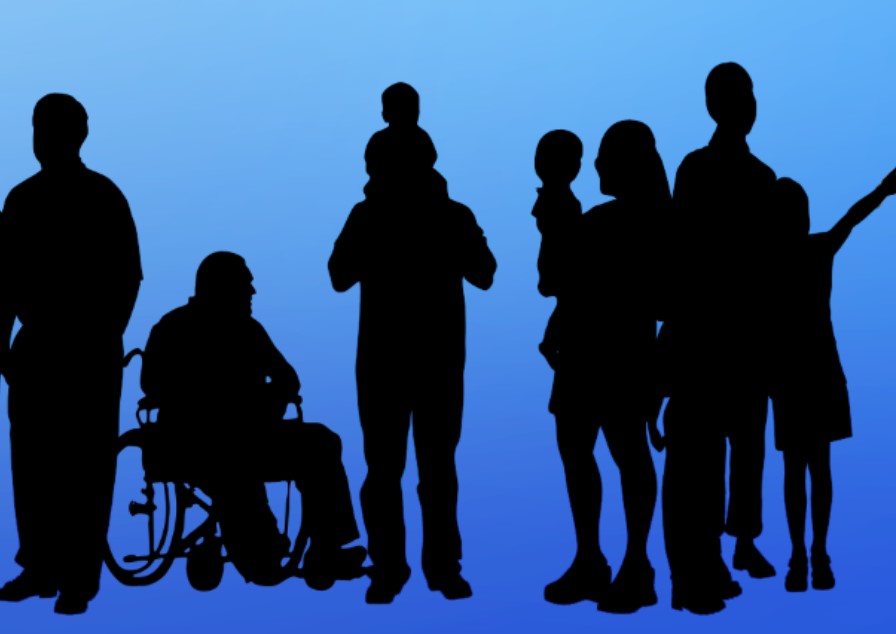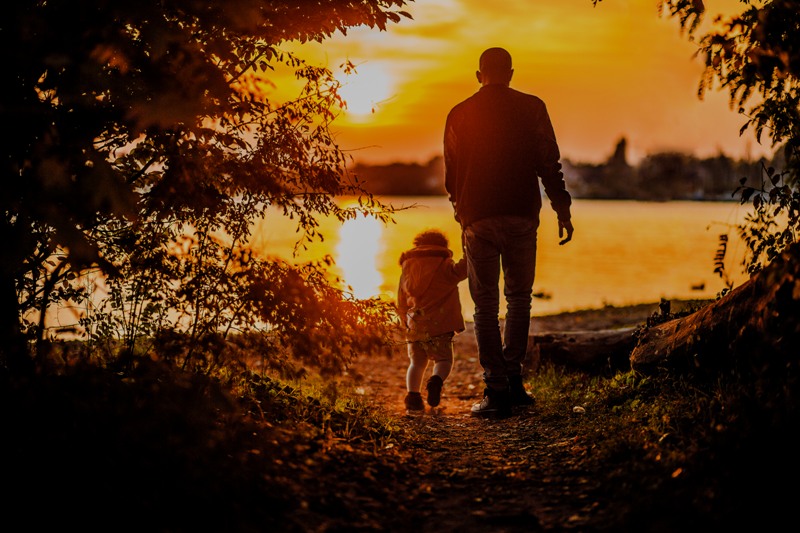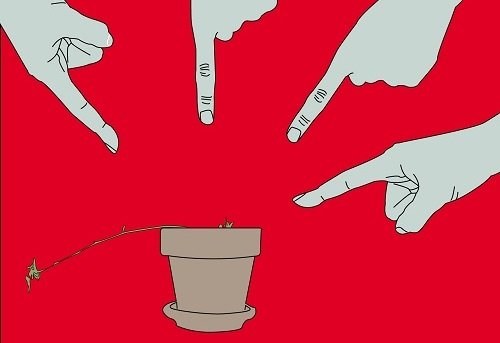Friendship
Introduction
The most practical expression of the church is in friendship. But personal and cultural challenges to friendship are very real, and worth reflecting on.
Messages and Resources on Friendship, Desire, and the Church
Friendship: Is It Really That Important?
Text of a message on Matthew 5:21 - 26 and 7:1 - 12. Friendship is important enough to prioritize, but not important enough for which we disobey Jesus.
Why Jesus, Faith, and Character Come Before Affection and Love (TBD)
Text of a message on 2 Peter 1:5 - 11. Contrary to what our culture tells us, that we're ready for affection and love, Christian faith says that we need to rebuild from a foundation of Jesus.
Friendship for a Healthy Culture of Dating
Text of a message on Ephesians 4:25 - 32, given at Rescued Church Boston, Jul 19, 2015. Since friendship is more eternal than marriage, and certainly dating, we are absolutely called to respect principles of Christian friendship, while dating and pursuing dating. See also the video.
Text of a message on 1 Corinthians 9:19 - 22, given at Rescued Church Boston, Jul 12, 2015. See also the video.
Go and Do Likewise Series (Grace Christian Church Waltham, Feb 2017) Friendship and Racial Reconciliation based on Jesus' Good Samaritan parable in Luke 10:25 - 37
Dishon Mills, Go and Do Likewise 1. Grace Christian Church Waltham, Feb 5, 2017.
Afrika Mills, Go and Do Likewise 2. Grace Christian Church Waltham, Feb 12, 2017.
Mako Nagasawa, Go and Do Likewise 3 (and ppts). Grace Christian Church Waltham, Feb 19, 2017.
Eddie Lowe, Go and Do Likewise 4. Grace Christian Church Waltham, Feb 26, 2017.
Other Resources on the Church and Friendship
Spiritual Friendship: Musings on God, Sexuality, Relationships (website)
The Bruderhof (website)
Augustine, Confessions, from chapter 4, paragraphs 7 - 24 (354 - 430 AD)
John Cassian, On Friendship, from Conferences 16 (360 - 435 AD)
Aelred of Rievaulx, Spiritual Friendship (1110 - 1167 AD)
Charlotte and Denis Plimmer, JRR Tolkien: "I Never Expected a Money Success". Telegraph UK, Mar 22, 1968 reprinted Oct 21, 2015.
Steven Hart, The Real Fellowship of the Ring. Salon, Dec 3, 2003.
Stuart Jeffries, Alain Badiou: A Life in Writing. The Guardian, May 18, 2012.
Rabbi David Wolpe, The Limitations of Being "Spiritual But Not Religious". Time op-ed, Mar 21, 2013.
Emily Esfahani Smith, Relationships Are More Important Than Ambition. The Atlantic, Apr 16, 2013.
Shimi Cohen, The Innovation of Loneliness. video.
Lifeboat, State of Friendship in America 2013. Lifeboat, May 2, 2013.
Matthew Hutson, Morality, Secret to Popularity. Boston Globe, Oct 27, 2013.
Hannah Roberts, Terribly Disfigured Man Who Was Held by the Pope Relives the Moment That Moved the World. U.K. Mail Online, Nov 18, 2013.
Lisa Wade, American Men's Hidden Crisis: They Need More Friends! Salon, Dec 7, 2013.
Betsy Childs, C.S. Lewis on Friendship, with Implications for Twitter. First Things, May 21, 2014.
Alan Jacobs, Fantasy and the Buffered Self. The New Atlantis, Winter 2014.
Corey Widmer, Traditional Sexuality, Radical Community. The Gospel Coalition, Oct 3, 2014.
Maria Konnikova, The Limits of Friendship. The New Yorker, Oct 7, 2014. 5 intimate, 15 friendly, and why social media is making those numbers smaller
Andy Kim, Five Practices for Developing Deep Friendships, Part 1. IVCF blog, Oct 9, 2014.
Andy Kim, Five Practices for Developing Deep Friendships, Part 2. IVCF blog, Oct 10, 2014.
George Monbiot, The Age of Loneliness is Killing Us. The Guardian UK, Oct 14, 2014.
Travis Bradberry, How Successful People Handle Toxic People. Forbes, Oct 21, 2014.
Derek Thompson, Why Cliques Form at Some High Schools and Not Others. The Atlantic, Nov 10, 2014.
Johann Hari, The Likely Cause of Addiction Has Been Discovered, and It Is Not What You Think. Huffington Post, Jan 20, 2015.
Joy-Elizabeth Lawrence, Stop Overlooking Singles in Church. Today's Christian Woman, Feb 8, 2015.
Guy Winch, How to Practice Emotional First Aid. TED, Feb 16, 2015. Winch, a psychologist, argues that we should care for our minds and emotions like we care for our bodies. He focuses on how loneliness and failure become self-imprisoning yet we can fight feelings of loneliness and helplessness and failure. We can stop emotional bleeding.
Mark Greene, Why Do We Murder the Beautiful Friendships of Boys? The Good Men Project, Feb 26, 2015.
Anonymous, Pregnant at Harvard. Harvard Crimson, Apr 27, 2015. on lack of friendship
Matthew Teague, The Friend. Esquire, May 10, 2015. on the friend who stayed when a man's wife died of cancer
Anonymous, The Ones We Leave Behind. Harvard Crimson, May 27, 2015.
Stephen Nemes, Friendship According to Friends. The Crucified God blog, Jul 15, 2015.
Robbie Crouch, This Quick-Thinking Teen Cleverly Befriended a Woman's Kidnapper to Rescue Her. Upworthy, Aug 20, 2015. a great example of listening
Robert Wicks, The 4 Types of Friends You Need in Your Life. Psychology Today, Aug 24, 2015.
Eric Metaxas, How J.R.R. Tolkien Helped Lead C.S. Lewis to Faith. The Stream, Oct 12, 2015.
C.S. Lewis, Love is Vulnerable. Zen Pencils.
Ben Myers, God is Love: Varieties of Love in Christian Tradition. Faith and Theology blog, Nov 2015.
Brett and Kate McKay, The Power of Conversation: A Lesson from C.S. Lewis and J.R.R. Tolkien. The Art of Manliness blog, Nov 2, 2015.
Ted Johnston, Pastoral Care as Moral Advocacy. The Surprising God blog, Nov 16, 2015.
Thomas Burnett, Married, With Roommates: Why My Wife and I Choose to Live in a Group House. Vox, Nov 17, 2015.
Kim Brooks, I'm Having a Friendship Affair. New York Magazine, Dec 2015. A look at the intensely obsessive, deeply meaningful, occasionally undermining, marriage-threatening, slightly pathological platonic intimacy that can happen between women.
Barbara Sher, Isolation is the Dream-Killer, Not Your Attitude. TEDx Prague, Jan 6, 2016. According to Barbara Sher we have to change our common understanding of why we so often fail to bring our dreams into reality – blaming bad attitude, negative thinking or lack of effort. Heartfelt, funny and surprising stories told by a lady who's been helping other people's dreams for many decades.
Rebecca Traister, What Women Find in Friends That They May Not Get From Love. New York Times, Feb 27, 2016.
Cassie Werber, Research Has Uncovered the Precise Age At Which We Start Losing Friends. Quartz, May 20, 2016.
Sebastian Junger, Tribe: On Homecoming and Belonging. Twelve | Amazon page, May 24, 2016.
Jeff Smith and Bill Moser, We Left Upper-Class Suburbia to Become Amish and Learned What Community Really Means. Washington Post, Jun 21, 2016.
Joseph Hellerman, Our Priorities Are Off When Family is More Important Than Church. Christianity Today, Aug 4, 2016.
Bradley J. Birzir, Brothers and Friends: Warren and C.S. Lewis. The Imaginative Conservative, Aug 2016.
Conor Friedersdorf, A College is a Community But Not a Home. The Atlantic, Sep 24, 2016. relates to Nancy Abelmann, The Intimate University: Korean American Students and the Problems of Segregation. Duke University Press | Amazon page, Nov 20, 2009.
Kate Murphy, Do Your Friends Actually Like You? New York Times, Aug 6, 2016.
Paul Midden, I've Spent 30 Years Counseling Priests Who Fall In Love. Here's What I've Learned. Vox, Oct 5, 2016.
David Brooks, Intimacy for the Avoidant. New York Times, Oct 7, 2016.
Dalai Lama and Arthur C. Brooks, Behind Our Anxiety, the Fear of Being Unneeded. New York Times, Nov 4, 2016.
Dhruv Khullar, How Social Isolation Is Killing Us. New York Times, Dec 22, 2016.
Caroline Praderio, One Man Spent Years Befriending KKK Members and Persuaded 200 of Them to Leave the Group. Business Insider, Dec 28, 2016.
Eve Tushnet, Beyond Religious Life and Marriage: A Look at Friendship as Vocation. America Magazine, Jan 24, 2017.
Billy Baker, The Biggest Threat Facing Middle-Age Men Isn’t Smoking or Obesity. It’s Loneliness. Boston Globe, Mar 9, 2017.
Emily Dreyfuss, Silicon Valley Would Rather Cure Death Than Make Life Worth Living. Wired, Mar 23, 2017.
Liz Mineo, Good Genes Are Nice, But Joy is Better. Harvard Gazette, Apr 11, 2017. relational connection shown to increase life
Denis Campbell, Facebook and Twitter 'Harm Young People's Mental Health' The Guardian UK, May 19, 2017. Poll of 14- to 24-year-olds shows Instagram, Facebook, Snapchat and Twitter increased feelings of inadequacy, anxiety
Chris Weller, A Neuroscientist Who Studies Decision-Making Reveals the Most Important Choice You Can Make. Business Insider, Jul 28, 2017. the company you keep
Vivek H. Murthy, Work and the Loneliness Epidemic. Harvard Business Review, Sep 2017.
Roc Morin, How to Hire Fake Friends and Family. The Atlantic, Nov 7, 2017. re: the Japanese rent-a-friend industry; see also Elif Batuman, Japan's Rent-A-Family Industry. New Yorker, Apr 30, 2018.
Guy Winch, How to Fix a Broken Heart. TED, Feb 27, 2018. Brain studies have shown that the withdrawal of romantic love activate the same mechanisms in our brains as withdrawal from addictive substances. Sometimes seeking an explanation or closure is like feeding an addiction. Idealizing the person is also an illusion.
Rhitu Chatterjee, Americans Are A Lonely Lot, And Young People Bear The Heaviest Burden. NPR, May 1, 2018.
Clay Routledge, Suicides Have Increased. Is This an Existential Crisis? New York Times, Jun 23, 2018.
Deborah Copaken, What I Learned About Life at My 30th College Reunion. The Atlantic, Oct 24, 2018.
Jolie Kerr, How to Talk to People, According to Terry Gross. New York Times, Nov 17, 2018. eight tips
Arthur C. Brooks, How Loneliness Is Tearing America Apart. New York Times, Nov 23, 2018. re: political implications especially
Brianna West, Connection Is a Core Human Need, But We Are Terrible at It. Medium, Dec 4, 2018.
Melanie Hamlett, Men Have No Friends and Women Bear the Burden. Bazaar, May 2, 2019.
Abigail Murrish, Both Purity Culture and Hook-Up Culture Failed Me. Christianity Today, Jul 2019. “then I found church fellowship”
Peter Mommsen, The McDonald's Test: Learning to Love Back Row America. Plough, Jul 3, 2019. Chris Arnade says, “I was certainly an atheist when I began; it’s more complicated now… There aren’t many success stories in my book – there’s almost nobody who got out of a negative lifestyle. The only people who succeeded did it through faith – through the church. And so I had at first a grudging respect, and then a full-blown respect for what churches are doing.”
Ashley Fetters, Some Men Share Their Secrets Only in Therapy. The Atlantic, Sep 26, 2019. “And they would probably benefit from confiding in more people.”
Barna, One in Three Practicing Christians Has Stopped Attending Church During COVID-19. Barna, Jul 2020.
Rhaina Cohen, What If Friendship, Not Marriage, Was at the Center of Life? The Atlantic, Oct 20, 2020. “Our boyfriends, our significant others, and our husbands are supposed to be No. 1. Our worlds are backward.”
Laura Cathcart Robbins, I Thought Of Relapsing When Rioters Stormed The Capitol. Then An Amazing Thing Happened. Huffington Post, Jan 13, 2021. “At the time of this writing, I have been sober for 12 years. But the moment this all happened, the pain of it felt like too much for me to bear.” How this black woman felt after the white supremacists were treated during the Capitol riot.
Saagar Enjeti, QAnon Supporters Melt Down As Biden Takes Office. Trump Is To Blame. Rising | The Hill, Jan 21, 2021. points to a lack of meaning and community; the most sensitive and sympathetic reflection on QAnon Trumpists that I know of.
Amanda Mull, The Pandemic Has Erased Entire Categories of Friendship. The Atlantic, Jan 28, 2021. “There’s a reason you miss the people you didn’t even know that well.” “Weak ties.”
Arthur C. Brooks, The Best Friends Can Do Nothing For You. The Atlantic, Apr 8, 2021.
Pop Culture Detective, Everyone Everywhere Needs Waymond Wang (and Ke Huy Quan). Pop Culture Detective, Jul 19, 2022. This “beta male” became a hero by being the character whose kindness must not be mistaken as weakness.
Jonathan Haidt and Jean M. Twenge, This Is Our Chance to Pull Teenagers Out of the Smartphone Trap. New York Times, Jul 31, 2021. “The Program for International Student Assessment, or PISA, has surveyed 15-year-olds in dozens of countries every three years since 2000. In all but two administrations, the survey included six questions about loneliness at school… So what does the PISA survey show? In a paper we just published in The Journal of Adolescence, we report that in 36 out of 37 countries, loneliness at school has increased since 2012. We grouped the 37 countries into four geographic and cultural regions, and we found the same pattern in all regions: Teenage loneliness was relatively stable between 2000 and 2012, with fewer than 18 percent reporting high levels of loneliness. But in the six years after 2012, rates increased dramatically. They roughly doubled in Europe, Latin America and the English-speaking countries, and rose by about 50 percent in the East Asian countries.”
Saagar Enjeti, American Men in Crisis as Jobs, Income, Marriage Rates Decline. What Is Going On? Breaking Points, Oct 11, 2021.
Seth Stephens-Davidowitz, The One Parenting Decision That Really Matters. The Atlantic, May 7, 2022. Living in a neighborhood with good adult role models, which could easily become about how a church community can supply good adult role models to children and youth. “Three of the biggest predictors that a neighborhood will increase a child’s success are the percent of households in which there are two parents, the percent of residents who are college graduates, and the percent of residents who return their census forms. These are neighborhoods, in other words, with many role models: adults who are smart, accomplished, engaged in their community, and committed to stable family lives. There is more evidence for just how powerful role models can be. A different study that Chetty co-authored found that girls who move to areas with lots of female patent holders in a specific field are far more likely to grow up to earn patents in that same field. And another study found that Black boys who grow up on blocks with many Black fathers around, even if that doesn’t include their own father, end up with much better life outcomes. Data can be liberating. It can’t make decisions for us, but it can tell us which decisions really matter. When it comes to parenting, the data tells us, moms and dads should put more thought into the neighbors they surround their children with—and lighten up about everything else.”
Miranda Zapor Cruz, The Myth of the 93%: Fathers and Mothers Are Not a Competitive Hierarchy in the Home. Missio Alliance, Nov 8, 2022.
Ryan Chapman, Why Are Identity Politics So Intense in America? Ryan Chapman, Nov 25, 2022. Starts with the communitarian, group-oriented behaviors of human beings historically and presently. We desire recognition and respect, and groups are the primary way we achieve that. Chapman critiques white supremacy. Samuel Huntington argues that national identity in countries forms over time and via organic channels, but not in the U.S.
Catherine Pearson, Why Is it So Hard for Men to Make Close Friends? New York Times, Nov 28, 2022.
Krystal Ball, Shock Data: Is America Drowning In Loneliness? Breaking Points with Krystal Ball and Saagar Enjeti, Nov 30, 2022.
Emily Jashinsky, Why American Loneliness Spiked Before Covid. Breaking Points, Dec 6, 2022. Social media and TV use.
Viji Diane Kannan and Peter J. Veazie, US Trends in Social Isolation, Social Engagement, and Companionship ⎯ Nationally and By Age, Sex, Race/Ethnicity, Family Income, and Work Hours, 2003-2020. SSM Popular Health | Pub Med, Dec 2022.
Noah Smith, How Technology Has Changed the World Since I Was Young. Noahpinion | Substack, May 15, 2023. Good data on people’s screen-time use and online behavior.
Krystal Ball and Saagar Enjeti, Record Number of Americans Living Alone. Breaking Points, Jul 15, 2023.
Derek Thompson, The Anti-Social Century. The Atlantic, Jan 8, 2025. Americans are now spending more time alone than ever. It’s changing our personalities, our politics, and even our relationship to reality.
The Church: Topics:
This section on the Church is organized from formal theology to practical expression. Holy Spirit includes messages and reflections on the Holy Spirit, including the Spirit’s gifts. Pentecost examines Jesus redeeming not only individuals but languages, relations, and cultures, which carries political implications as well. Church and Language highlights the nature of human language, including its political uses, and Christian engagement. Church and Mission spotlights the history of Christian mission as well as resources for today’s Christian mission movement. Church and Women presents resources supporting women in all levels of church leadership. Church and Empire explores the positive and negative patterns of Christians and political power. Myth of Christian Ignorance confronts the Western accusation that Christian faith stunted the growth of Western culture and institutions. Church Unity maintains resources related to the major issues which have concerned the Assyrian Church of the East, the Oriental Orthodox, the Catholic-Orthodox split, and the Protestant split. Church and Friendship focuses on practical expressions of community and reflects on the conditions for and against friendship, largely in the U.S.
Desire: Topics:
Here’s how to understand this section on Desire: We believe Jesus’ own human desires, journey, and teaching are normative for human becoming, so we pursue Christian Formation to help us better understand questions that come up as we pursue Jesus’ vision for human flourishing. Human Destiny itself is best understood through the lens of desire. We stay aware of research and reflections on human emotional and Moral Development. We are helped by insights into the mind-brain-body connection in Brain, Genes and Rest. We follow research and reflections on Friendship and Happiness. We track resources about Greed and how money makes us more greedy. Addiction and overconsumption challenges the notion that we are “sovereign individuals.” We maintain the biblical critique of interest rate Debt as a way people fund overconsumption and entrap themselves. Sex is part of human moral and emotional development; we critique the Sex Industry for how it distorts us.






















